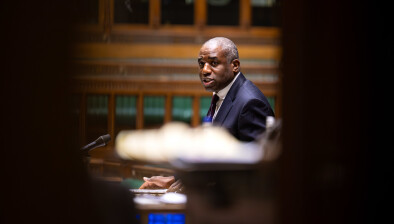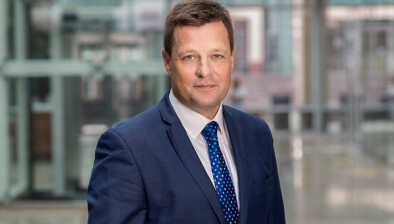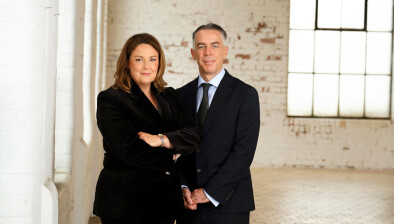High Court: Medical Council loses application for in camera hearing
The Medical Council has lost an application to have an application under section 76 of the Medical Practitioners Act 2007 heard in camera.

About this case:
- Citation:[2019] IEHC 109
- Judgment:
- Court:High Court
- Judge:Mr Justice Peter Kelly
Emphasising the importance in having an open hearing, Mr Justice Peter Kelly, President of the High Court said that he would direct that the s.76 hearing proceed in in public, but that he would prohibit the publication or broadcast of anything which would or might identify the doctor or any of the patients involved.
Background
Over a five year period, the doctor suffered from an opioid addiction, which had its origins “in pain relief properly prescribed for him in respect of injuries which the sustained years beforehand”. Mr Justice Kelly explained that, to feed his addiction, the doctor prescribed unnecessary opioids to patients, administering doses only part of the dispensed opioids and administering the remainder to himself.
Fitness to Practise Committee Inquiry
An inquiry before the Medical Council’s Fitness to Practise Committee (FTPC) was held on foot of two applications: one by a complainant and another the doctor’s own self-referral. A total of 12 allegations were made against the doctor before the FTPC. An investigation by the FTPC gave rise to adverse findings against the doctor.
The FTPC recommended that the doctor be censured and recommended that the doctor’s registration be subject to a series of conditions.
The FTPC found the doctor guilty of:
- failing to meet the standards of competence that can reasonably be expected of a general practitioner,
- engaging in conduct connected with the profession in which the doctor seriously fell short by omission or commission of the standards of conduct expected among doctors, and
- engaging in conduct which doctors of experience, competence and good repute would consider disgraceful or dishonourable.
The FTPC found that the doctor continued to suffer from a relevant medical disability – described in allegation 12 as “an opiate addiction and/or a mixed anxiety and/or depressive state which may impair ability to practise medicine or a particular aspect thereof”.
Having considered expert evidence in respect of the poor professional performance and misconduct, and the evidence of two psychiatrists, the FTPC concluded that the appropriate sanction was censure and conditional registration.
Pursuant to section 69 of the Medical Practitioners Act 2007, the FTPC’s report was submitted to the Council for its consideration. The Medical Council’s Chief Executive Officer submitted that the FTPC had concluded that the doctor’s conduct was “at the most serious end of the spectrum”, that the sanctions recommended by the FTPC was inadequate, and that the doctor’s registration as a medical practitioner should be cancelled.
The Medical Council did not accept that proposition and decided the appropriate sanction should be conditional registration – as recommended by the FTPC. The Council said that “in the exceptional circumstances of this case, the Council felt the case did not warrant cancellation or suspension on public safety grounds or to send any appropriate message to the doctor, the profession or the public at large”.
Application for in camera hearing
In anticipation of an application under section 76 of the Medical Practitioners Act 2007, the Medical Council made an application seeking an in camera hearing in order to adequately protect the interests and wellbeing of the doctor and the patients involved.
Mr Justice Kelly explained that in Medical Council v. T.M. [2017] IEHC 548, he concluded that there was no power express or implied conferred by the Act to hear an application under s.76 of the Act in camera. He added that the legislature conferred express statutory entitlement to hold such hearings in camera but only in respect of applications to suspend a registered medical practitioner pursuant to the provisions of s.60 of the Act – therefore it was reasonable to conclude that the intention of the legislature by implication was in favour of applications under s.76 being heard in public.
Notwithstanding the lack of an express statutory provision, Mr Justice Kelly held that there was nonetheless a common law power to direct such a hearing having regard to the decision of the Supreme Court in Gilchrist and Rogers v. Sunday Newspapers Ltd [2017] IESC 18. In Gilchrist’s case, Mr Justice O’Donnell said there was “a continuing common law power to direct a trial in camera where it is required, and that such a course could be particularly justified when constitutional values are engaged”.
He also pointed out that the claim for an in camera hearing “can only be determined by the courts and must be closely and jealously scrutinised”. The reason for a restrictive approach was clearly due to the requirement that justice be administered in public pursuant to Article 34.1 of the Constitution is a fundamental constitutional value of great importance
Mr Justice Kelly said it was relevant that the doctor had self-reported and was found to have been suffering from a relevant medical disability during the time of his misconduct; that he had since rehabilitated himself and would be back in practice subject to the conditions recommended by the Council should the Court accede to the s.76 application; and that disclosure of his identity would have very serious consequences for the doctor’s recovery process. Mr Justice Kelly said he was satisfied the doctor’s identity should be protected, but that a full in camera hearing was no necessary in order to do so.
Emphasising the importance in having an open hearing, Mr Justice Kelly said that he would direct that the s.76 hearing proceed in in public – but that he would prohibit the publication or broadcast of anything which would or might identify the doctor or any of the patients involved.
Considering whether the patients affected by the doctor’s professional misconduct and poor professional performance should be made aware of how they had been treated, Mr Justice Kelly said he agreed entirely with the doctor’s patients being so advised and said the Council was authorised to do so in the public interest.
- by Seosamh Gráinséir for Irish Legal News








